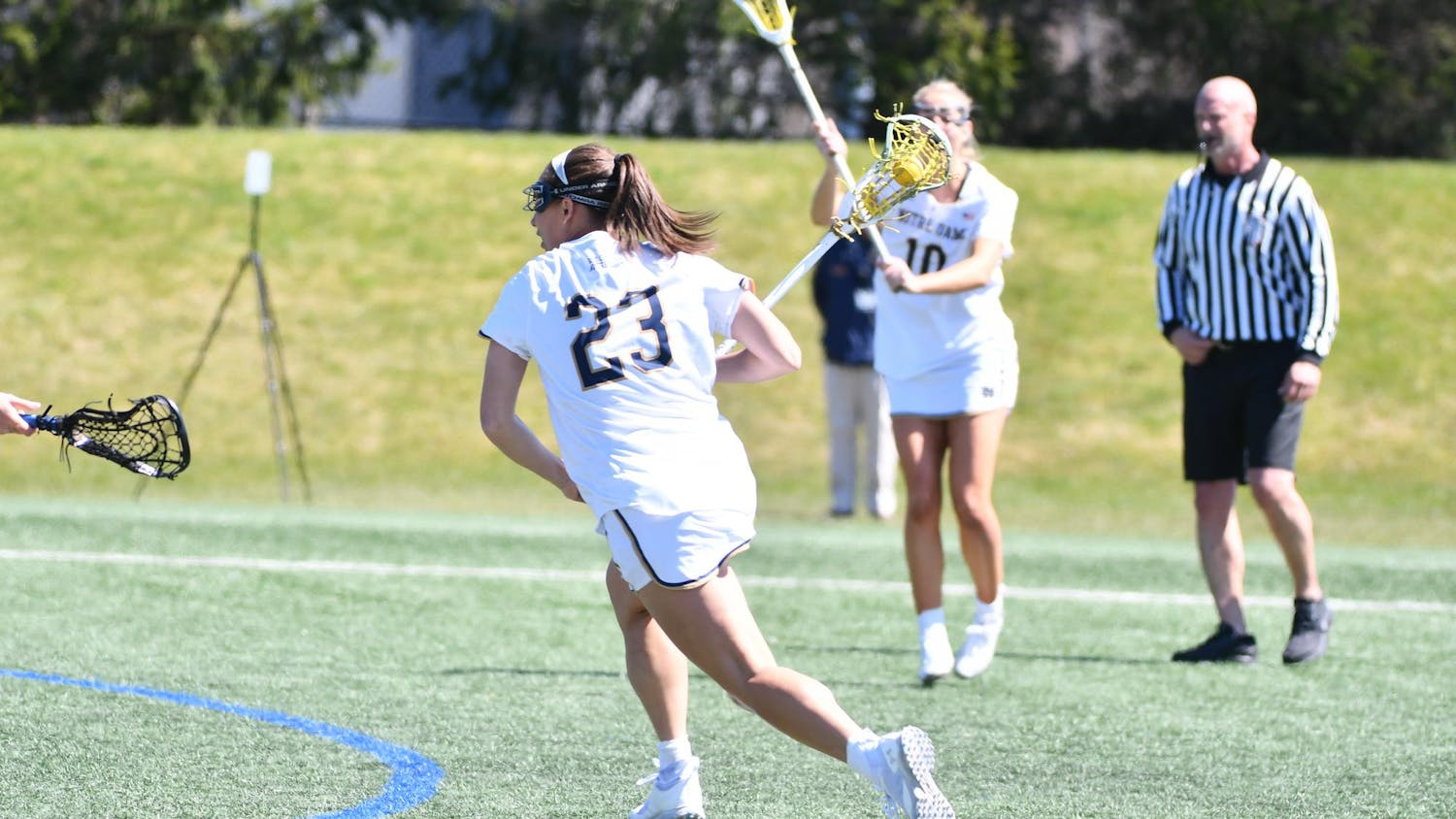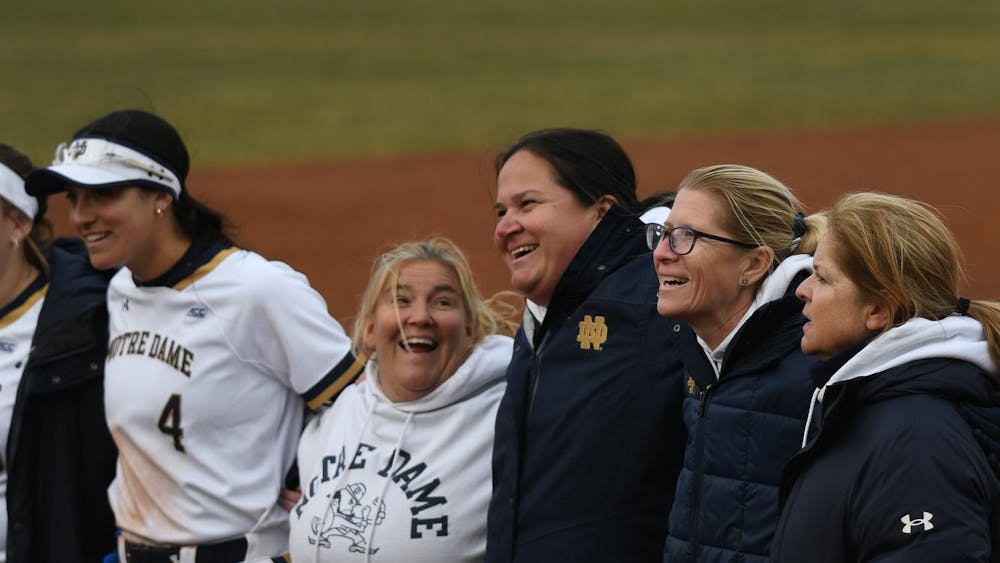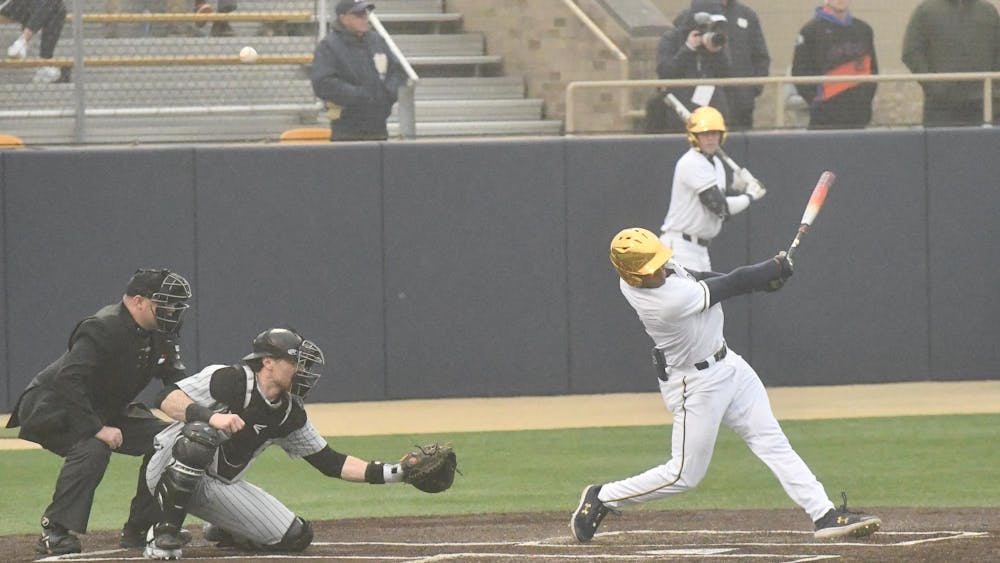This was the game that changed it all for Allen Pinkett.
Before Notre Dame's 1982 date with No. 1 Pittsburgh, the former Irish running back did not know about the Notre Dame mystique and after it, he found out just how important football was in South Bend.

"I really had no idea of the Notre Dame mystique around that type of game, like Notre Dame really loves to be in those types of games," Pinkett said. "That was evident from the upperclassmen, how they were different for that game than how they had been for other games."
The Irish dethroned Dan Marino and the Panthers with a 31-16 win. Pinkett, then a freshman, ran for a game-high 112 yards on just 10 carries as Notre Dame tallied nearly 200 yards on the ground. However, Pinkett said the Panthers were intimidating at first.
"Once we got into the game, I didn't think it was the Pitt Panthers, I thought it was the Pittsburgh Steelers," he said. "These dudes were huge and they slammed down [former Irish running back] Phil Carter on the ground one time so hard that he bounced up off the turf. And I was like, 'Hell no, I'm not going in there.' By the time I did get in, I was literally running scared."
After Pittsburgh pulled within one point of the Irish on a field goal with 12:14 left in the fourth quarter, Pinkett gave Notre Dame a little cushion. Pinkett took a handoff, cut back to the right and split two defenders before sprinting into the end zone for a 76-yard score.
"Next thing you know, I'm in the open and I can't believe I'm in the open and I look around me, there's nobody left," Pinkett said. "The only thing in front of me is green grass and opportunity. That particular run got me pretty excited and I was now in a groove. When I came in next time, I ran with a lot more ferocity. I was done running scared at that point."
Pinkett added another late score with four minutes left to give the Irish a 15-point lead. Notre Dame entered the fourth quarter trailing the Panthers 13-10, but outscored Pittsburgh 21-3 in the final period.

"As a team, we were really just starting to wear them out," Pinkett said. "It was a great victory on the field."
When the Irish returned to Notre Dame, Pinkett said the bus took about an hour to drive down Notre Dame Avenue, because the students were out to greet the team.
"It was at that point when I figured out that football is pretty important at this place."
As a freshman, Pinkett carried the ball 107 times for 532 yards. He was one of three Irish backs in 1982 to have more than 85 carries. Pinkett said if it were not for an early-season injury to running back Greg Bell, he might not have seen the field until his junior season.
"Opportunity comes in a lot of different ways and you just have to be ready when your opportunity comes," Pinkett said. "I'll go as far as to say I probably wouldn't have seen the field until I was a junior but I got my opportunity. And once I got my opportunity, they weren't going to take me back out."
Pinkett rarely left the field in his final three seasons, racking up at least 250 carries and 1,100 yards each year. Pinkett said players have to be ready mentally to be the feature back.
"When you're the lead guy, you just can't be tired," he said. "It's a constant battle with having a conversation with yourself while you're on the field saying, 'I'm not tired. I'm not tired.' You rationalize with yourself that 'I'll be tired when I get in the end zone.' Had to do that several times."
In the last few years, Notre Dame has drifted away from the traditional feature back model and into a running back by committee system. The Irish used Theo Riddick and Cierre Wood in 2012, while George Atkinson, Cam McDaniel, Tarean Folston and Amir Carlisle have carried the rock this year.
Pinkett said splitting time among backs can be a good thing for teams.
"[Defenses] get used to one guy's style, next thing you know, another guy comes in and that angle you were taking to make the tackle all of a sudden isn't the fastest way to get there because this guy might be a little bit faster," he said. "When one of those running backs comes in, he may lower his shoulder and hit you a little bit harder than that first running back did."
Pinkett shared a backfield with first-round pick fullback Butch Woolfolk and Heisman Trophy winner Mike Rozier as a member of the Houston Oilers and said the dynamic can be a positive one.
"The other three guys I was in the backfield with in the NFL, we all cared about each other and we all knew we had limited opportunities," he said. "Our thing was that we had to hold up our end of the bargain and while we're in there, we have to run as if it's our last carry."
Pinkett said practice becomes much more important when you are fighting for playing time, especially in college, when players only have four 12-game seasons to impress.
"You've got 48 shots to prove you belong on the field on Sunday," he said. "That's not many opportunities. Practice becomes that much more important. Practice is not a 'go through the motions' kind of thing. Practice is how you improve. Practice is how you get those opportunities to get in the game and do your thing. It was all business when I was on the practice field."
Now, Pinkett broadcasts Notre Dame games as a radio analyst for IMG College Sports. Although Pinkett has done television work before, he said he does not foresee a return to the medium.
"Why would I want to go to regional TV when I'm already doing national radio? It's living the dream because I would be watching these games anyway," he said. "The beauty of broadcasting is I get a parking pass, which is more valuable than the ticket, and I get to watch my favorite team."
Contact Matthew DeFranks at mdefrank@nd.edu












